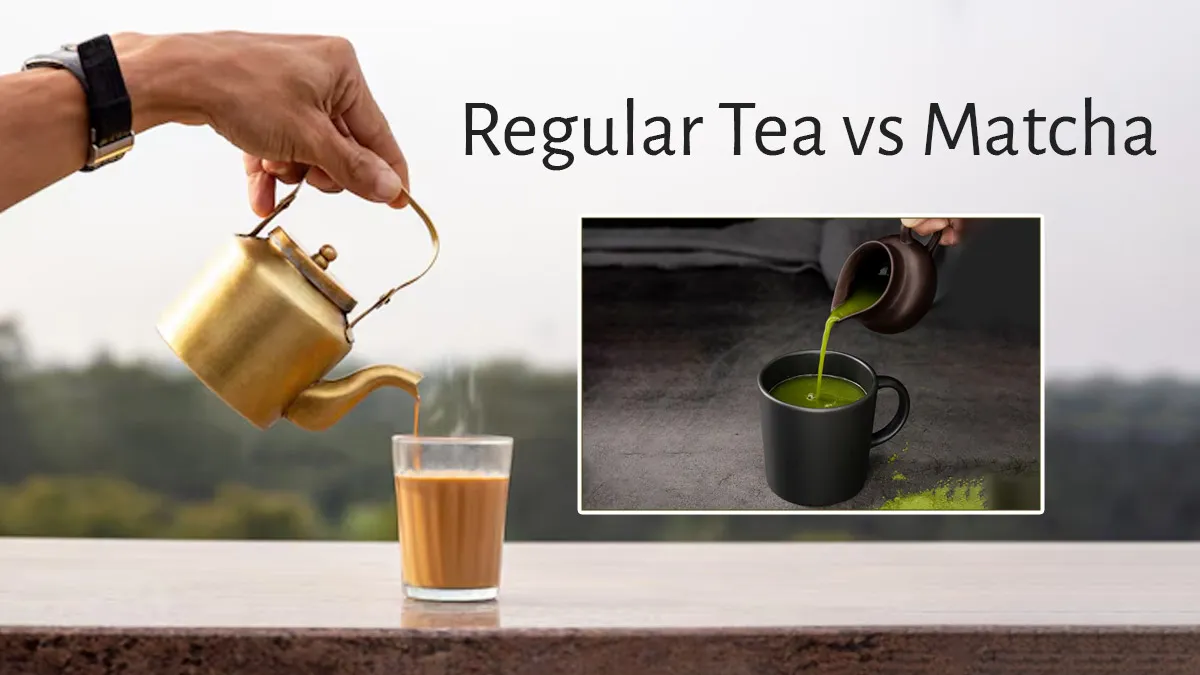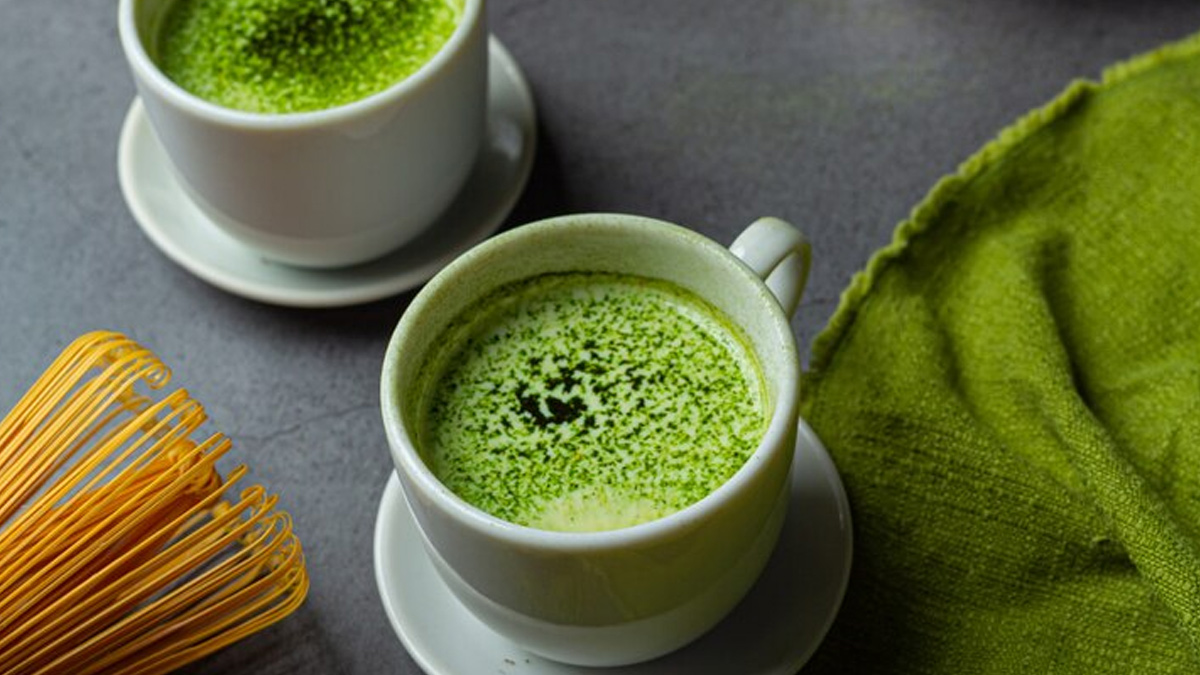
Imagine, It's a chilly morning, and you're standing in your kitchen, bleary-eyed and desperately seeking that perfect cup to kickstart your day. Do you reach for your trusty tea bag or that vibrant green powder that's been taking the wellness world by storm? The age-old debate of regular tea versus matcha has left many health-conscious individuals scratching their heads. But fear not, fellow tea enthusiasts! Read ahead to dive deep into the world of these beloved brews, comparing their health benefits, taste profiles, and overall impact on your well-being. An expert shared which of these green giants truly deserves the crown for overall health benefits.
Table of Content:-
Regular Tea vs Matcha
View this post on Instagram
Both regular green tea and matcha come from the same plant, Camellia sinensis, but their journeys from leaf to cup couldn't be more different. Regular green tea is made by steeping dried leaves in hot water, while matcha is created by grinding shade-grown tea leaves into a fine powder that's whisked into water.
Dr Ravi K Gupta, Hematologist-Oncology, Larkin Health System, Florida, weighs in on this leafy debate. "I stopped drinking tea and started drinking this because it's 137 times better than tea," he says, referring to matcha. "This is Matcha tea, and it's 137 times more antioxidant than tea."
ALSO READ: Real Coconut Water vs Packaged Scam: Here Is How The Sugary Chemical May Harm Your Overall Health
Antioxidant Powerhouse
The most significant difference between these two brews lies in their antioxidant content. Matcha takes the lead here, thanks to its unique preparation method:
- Whole Leaf Consumption: When you drink matcha, you're consuming the entire leaf, not just the water-soluble components.
- Shade-Growing: This process increases chlorophyll production, boosting the tea's antioxidant levels.
- A study published in the Journal of Chromatography A found that matcha contains up to 137 times more epigallocatechin gallate (EGCG), a potent antioxidant, compared to regular green tea.
Energy and Focus![matcha tea 2 - 2025-04-15T154016.602]()
Both teas contain caffeine, but their effects on energy levels differ:
- Regular Green Tea: Provides a gentle caffeine boost but may lead to an energy crash.
- Matcha: Offers sustained energy and focus without the jitters.
- Dr Gupta explains, "And it has caffeine too, but it also keeps the mind calm and focused. Which means energy and relaxation too."
Weight Management
When it comes to metabolism and weight loss, matcha seems to have an edge:
- Metabolism Boost: "Matcha can boost metabolism up to 30-40%," says Dr Gupta.
- Fat Oxidation: "Studies show that Matcha helps in fat oxidation, which helps in weight loss. But this doesn't happen in tea," he adds.
Detoxification
Matcha's detoxifying properties are another point in its favour:
Chlorophyll Content: "Matcha also has chlorophyll, which detoxifies the liver and cleanses the body," Dr Gupta notes. "The detoxification effect in tea is almost negligible," he states.
Taste and Versatility![regular tea 3 (63)]()
While health benefits are crucial, enjoyment plays a significant role in maintaining healthy habits:
- Regular Green Tea: Light, refreshing, and familiar.
- Matcha: Rich, creamy, with a distinct umami flavour. "And it's also very tasty," Dr. Gupta affirms.
- Matcha's versatility allows it to be incorporated into various recipes, from lattes to baked goods, making it easier to consume regularly.
ALSO READ: Here Is How Homemade Almond aka Badam Shake Can Be A Boon For Your Immunity and Glowing Skin
Conclusion
While both regular green tea and matcha offer health benefits, matcha appears to be the frontrunner in this green race. Its higher antioxidant content, sustained energy boost, potential weight management benefits, and detoxifying properties give it a significant edge. However, it's essential to remember that the best tea for you is the one you enjoy and will consume consistently. Whether you prefer the subtle notes of regular green tea or the rich, complex flavour of matcha, incorporating either into your daily routine can contribute to a healthier lifestyle.
Also watch this video
How we keep this article up to date:
We work with experts and keep a close eye on the latest in health and wellness. Whenever there is a new research or helpful information, we update our articles with accurate and useful advice.
Current Version

-1744712049638.jpg)